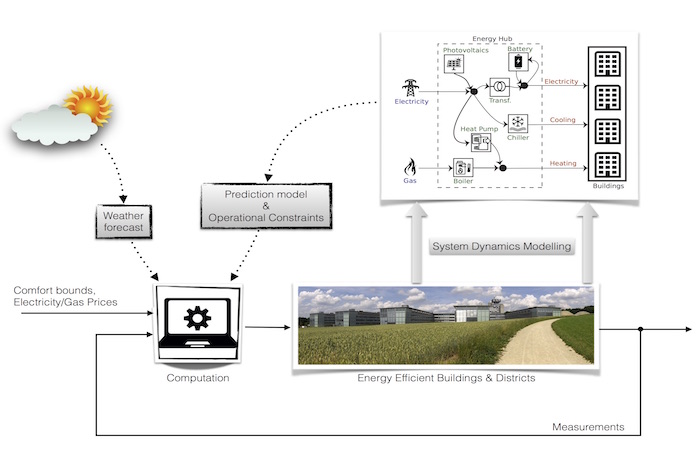Optimal Energy Management of Buildings and Districts
Active building energy management is facing significant new challenges by the increased penetration of renewable sources to the grid, and the opportunity to cooperatively manage the energy demands of aggregated district buildings through an energy hub.
Substantial economical and environmental gains can be envisaged, but require the design of advanced control systems that will be capable of efficiently operating the energy hub components (heat pumps, batteries, photovoltaics, etc.) that are commonly shared by the building community.
This research project, investigates the development of novel predictive control and management schemes that aim to minimize the cost of the energy purchased from the grid by the building community. The designed control systems must be capable of exploiting the potential efficiencies that arise from the shared use of resources, while respecting the building and interconnection constraints in a flexible information environment (e.g. fluctuating electricity prices) and in the presence of operational uncertainties, such as weather and occupancy. Due to the large-scale nature of the problem, decentralized stochastic control schemes, which are computationally effective and sufficiently robust to operational uncertainties, are also been investigated.
This research is partially funded by CTI within the SCCER FEEB&D, and the SNF under the project IMES.
More details about the project are available on the external page SCCER FEEB&D and IMES websites.
The ESC member responsible for this project is Prof. Dr. John Lygeros, Head of the Automatic Control Laboratory (IfA Lab). Prof. R. S. Smith, from the same lab, is also involved in this project.
More information about the research activities of the IfA Lab is available on the website of Automatic Control Laboratory .
